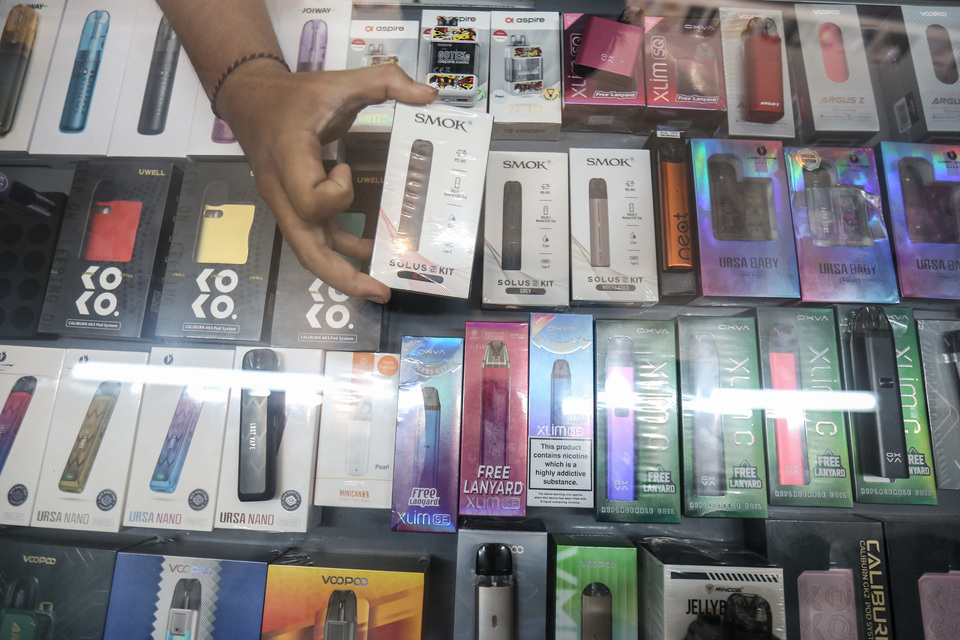
According to a recent report by Brazilian media outlet Band.uol, a preliminary study conducted by the Federal University of Santa Catarina in collaboration with the state scientific police revealed the presence of a substance similar to amphetamines - octodrine, in e-cigarettes.
According to information released by Santa Catarina Federal University, traces of cocaine were found in three different brands of e-cigarettes collected from ten different samples in the northern city of Joinville in that state. The records also show that these samples contain ingredients such as glycerin, flavorings, and nicotine.
The study also found that the presence of synthetic drugs in the samples may lead to serious poisoning, dependence, withdrawal symptoms, and adverse cardiovascular effects similar to those of synthetic drugs such as methamphetamine acting on the central nervous system.
However, the Santa Catarina State Public Safety Department stated that the presence of cocaine was not indicated on the package label for sale.
The study also emphasizes that exposure of spices to high temperatures may generate harmful substances, particularly more evident with long-term use.
Furthermore, the research also indicates that e-cigarette users have nicotine levels three to six times higher than traditional cigarette smokers.
We welcome news tips, article submissions, interview requests, or comments on this piece.
Please contact us at info@2firsts.com, or reach out to Alan Zhao, CEO of 2Firsts, on LinkedIn
Notice
1. This article is intended solely for professional research purposes related to industry, technology, and policy. Any references to brands or products are made purely for objective description and do not constitute any form of endorsement, recommendation, or promotion by 2Firsts.
2. The use of nicotine-containing products — including, but not limited to, cigarettes, e-cigarettes, nicotine pouchand heated tobacco products — carries significant health risks. Users are responsible for complying with all applicable laws and regulations in their respective jurisdictions.
3. This article is not intended to serve as the basis for any investment decisions or financial advice. 2Firsts assumes no direct or indirect liability for any inaccuracies or errors in the content.
4. Access to this article is strictly prohibited for individuals below the legal age in their jurisdiction.
Copyright
This article is either an original work created by 2Firsts or a reproduction from third-party sources with proper attribution. All copyrights and usage rights belong to 2Firsts or the original content provider. Unauthorized reproduction, distribution, or any other form of unauthorized use by any individual or organization is strictly prohibited. Violators will be held legally accountable.
For copyright-related inquiries, please contact: info@2firsts.com
AI Assistance Disclaimer
This article may have been enhanced using AI tools to improve translation and editorial efficiency. However, due to technical limitations, inaccuracies may occur. Readers are encouraged to refer to the cited sources for the most accurate information.
We welcome any corrections or feedback. Please contact us at: info@2firsts.com







